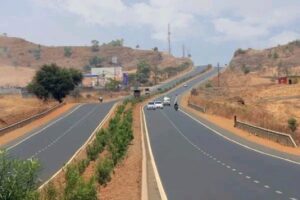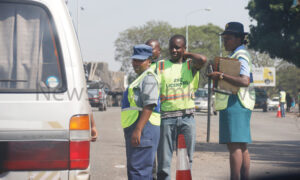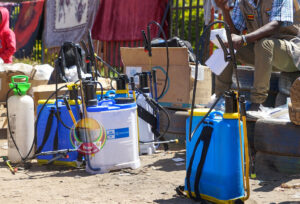CLAIM: There is no discount for blood donors. Not even an incentive apart from that glass of mazowe you get just after you donate.
SOURCE: X Account, Trams – @TramsUK
VERDICT: False
On April 6, 2025, X account holder, Trams, using the handle @TramsUK, claimed that there were neither discounts nor incentives for blood donors in Zimbabwe in the event they need transfusion.
‘There is no discount for blood donors,’ reads the post on X.
‘Not even an incentive apart from that glass of mazowe you get just after you donate.’
Trams’ post followed an earlier one by another X user, Late-Cummer – @DillenMasawi, who claimed on April 5 that the blood donation system in Zimbabwe was senseless in that when donors or their loved ones need it they have to pay at least US$400. The author of the post said while they understood there were costs of processing the blood, this did not justify the ‘insane charges’.
According to the National Blood Services – Zimbabwe (NBSZ), which is mandated by the Ministry of Health and Child Care to collect, process and distribute safe, adequate blood and its products, there are several benefits attached to blood donation. The NBSZ states on its website that blood and blood products prepared by the organisation are available free of charge to registered blood donors and their dependents in time of ill health or bodily injury, provided that the donor meets certain conditions highlighted below.
Conditions for benefitting from blood donations
· One should have made at least 10 donations with the last having been made during the last 12 months
· Having ceased to be a donor, for medical reasons, after having made 10 or more donations
· Having ceased to be a donor after having made 25 or more donations
· One should be an active blood donor under 21 years, having made at least 5 regular donations.
List of beneficiaries
· Donor – provided they meet the required criteria.
· Spouse – provided they are legally married.
· Children – below the age of 21.
· Biological parents.
NBSZ spokesperson, Vickie Maponga, says the NBSZ continues to honour its donors with its blood components beneficiary policy under which they also offer free blood to the biological parents, children or spouses of donors who have made 10 or more donations with their last donation within the past 12 months. She added that the high cost of blood is as a result of the processes it is first subjected to before safe transfusion.
‘Blood undergoes rigorous testing, component separation, storage and then distribution,’ she said. ‘All these processes are supposed to adhere to international safety standards. So the value chain involved in getting it from vein to vein is what costs money. That process has been evaluated through a costing model and cannot be circumvented.’
Stages involved when one donates blood according to the NBSZ are as follows:
· Registration
· Pre-donation screening
· Donation
· Post donation
Cost of producing blood in Zimbabwe
As at 2019, NBSZ pegged a pint of blood at US$120. On its website under Our Impact section and in particular KidzCanProject, the NBSZ also states that: ‘Whilst blood is donated for free, there is a value chain between its donation and transfusion to the patient, and this value chain costs US$120, an amount that the NBSZ recovers from the user in order to continue operating as a going concern.’
According to an independent study carried out in 2016, the cost of producing a pint of blood was US$118.42, ‘The unit production costs for red blood cells (RBCs) were US$15.94 for recruitment, US$34.62 for collection, US$17.88 for testing, US$11.49 for processing, and US$3.06 for storage plus distribution. The overall cost of production of one unit of whole blood was US$118.42’.
Cost of blood
In June 2018, then Health minister David Parirenyatwa announced that his ministry was scrapping user fees for blood accessed at public health institutions. He announced in a statement, his Ministry would be scrapping user fees for blood accessed by public health institutions with effect from the end of June 2018, ‘The free blood for all move is going ahead as planned and mechanisms have already been put in place to finance the move, and come July 1, blood will be available for free,’ said Dr Parirenyatwa.
However, this does not apply to patients in private wards or private institutions. At the time of this fact check, a pint of blood was pegged at US$272 at the NBSZ at the United Bulawayo Hospitals and US$250 at Mpilo Central hospital.
Conclusion
The claim: ‘There is no discount for blood donors. Not even an incentive apart from that glass of mazowe you get just after you donate,’ has been rated as false. According to NBSZ, regular active blood donors under 21 years of age who have made at least five donations and those above 21 who have donated 10 times or more qualify for free blood transfusion. The same also applies to non-active blood donors who ceased donations for medical reasons having made 10 or more donations and those who stopped donations for whatever reason having donated 25 times. Spouses, children and biological parents of qualifying donors also automatically qualify for free blood in the event they need it.







